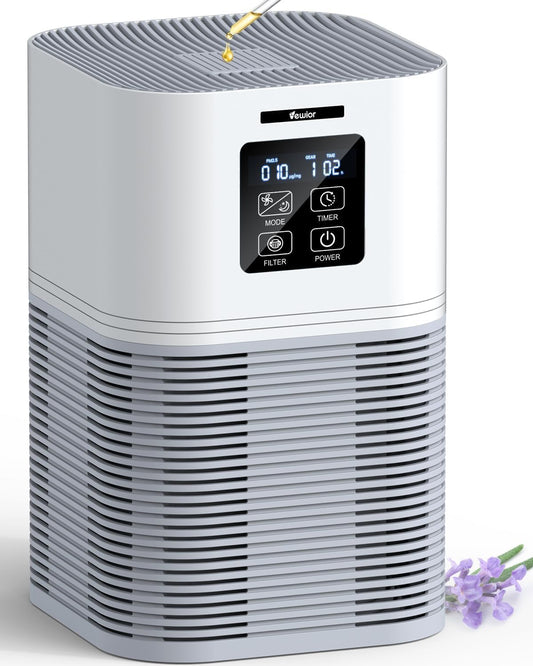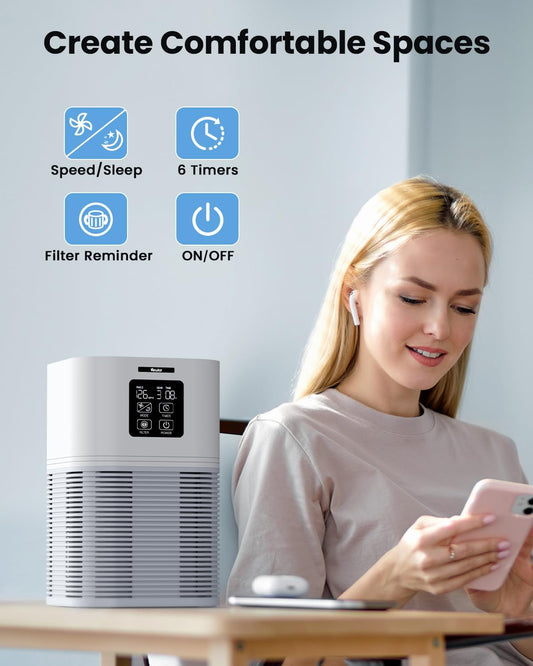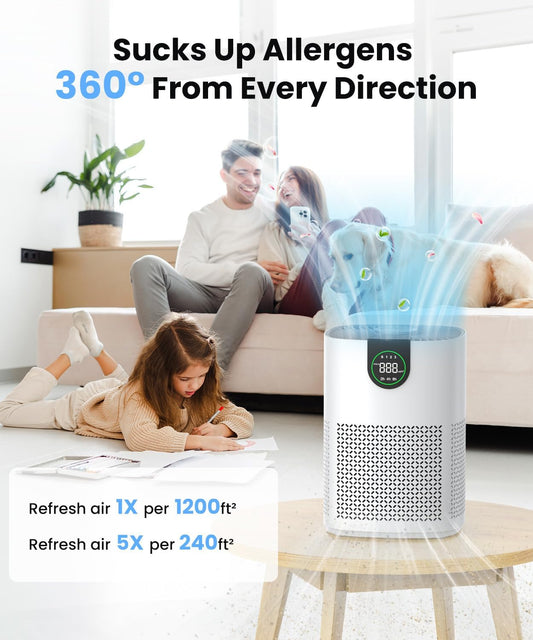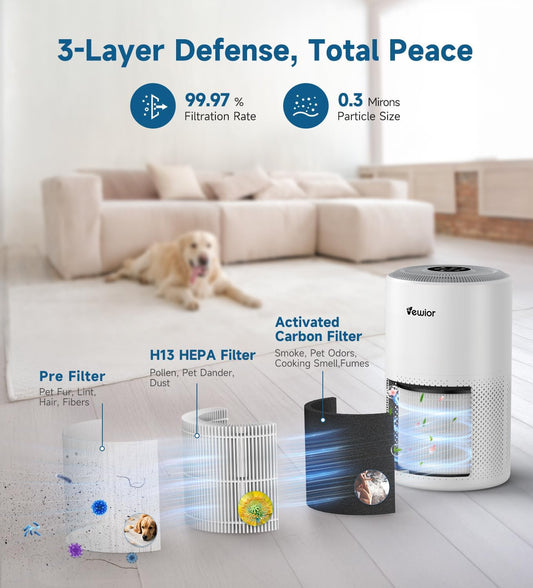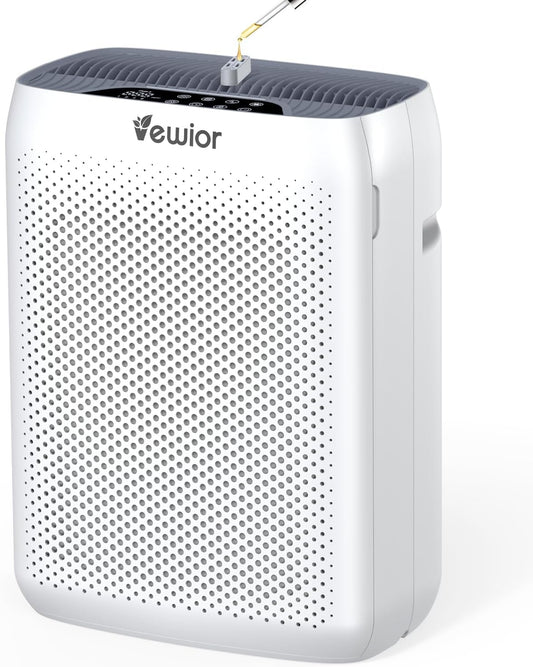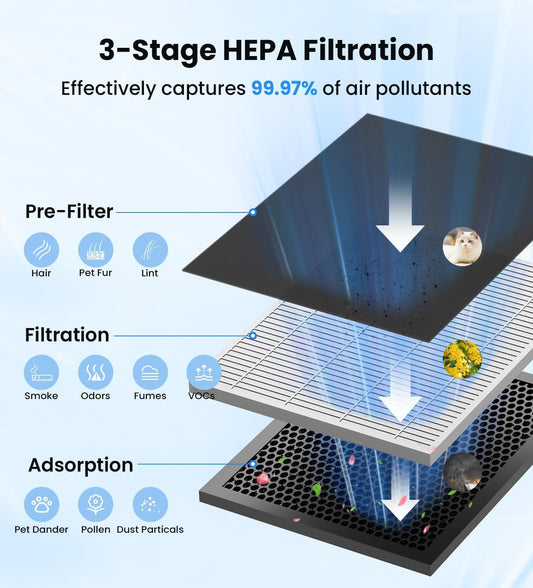Air purifiers are a popular solution for improving indoor air quality and creating a healthier living environment. One crucial aspect of air purifier maintenance is regularly changing the filters. In this article, we will address the common question: How often should I change the filters in my air purifier? We will discuss the factors that affect filter lifespan, signs that indicate the need for filter replacement, and provide practical tips to help you maintain optimal air purifier performance. By understanding the importance of filter maintenance, you can ensure that your air purifier continues to deliver clean and fresh air for you and your family.
Factors Affecting Filter Lifespan
The lifespan of air purifier filters can vary depending on several factors:
1. Filter Type
Air purifiers typically use different types of filters, such as pre-filters, activated carbon filters, and high-efficiency particulate air (HEPA) filters. Each filter type has its own recommended lifespan, which is determined by the manufacturer based on the filter's design and materials.
2. Air Quality
The air quality in your environment plays a significant role in filter lifespan. If you live in an area with high levels of air pollution, allergens, or pet dander, the filters may become clogged more quickly, requiring more frequent replacement.
3. Usage Time and Fan Speed
The amount of time your air purifier is running and the fan speed setting can impact filter lifespan. Air purifiers that run continuously or operate at higher fan speeds will generally require more frequent filter changes compared to those used intermittently or on lower fan settings.
4. Indoor Environment
The indoor environment itself can affect filter lifespan. Factors such as dust, pet hair, cooking odors, and the presence of smokers can contribute to faster filter clogging and reduced effectiveness.
Signs that Indicate the Need for Filter Replacement
While the recommended filter replacement intervals provided by manufacturers serve as a general guideline, it's important to be aware of signs that indicate the need for filter replacement. Some common signs include:
1. Reduced Airflow
If you notice a significant decrease in the airflow coming from your air purifier, it may be an indication that the filters are clogged and restricting the passage of air. Reduced airflow can compromise the purifier's efficiency in capturing airborne particles.
2. Strong Odors or Allergen Resurgence
If you start to notice persistent odors or experience an increase in allergy symptoms, it could mean that the filters are saturated and no longer effectively removing pollutants from the air.
3. Visible Dust or Dirt Buildup
Inspect the filters visually. If you notice a visible buildup of dust, dirt, or particles on the surface of the filters, it's a clear sign that they need to be replaced.
Tips for Filter Maintenance and Replacement
Follow these practical tips to ensure proper filter maintenance and timely replacements:
1. Consult the Manufacturer's Guidelines
Refer to the manufacturer's instructions and guidelines that accompany your air purifier. They will provide specific recommendations regarding filter replacement intervals and procedures.
2. Set Reminders
To avoid forgetting filter replacements, set reminders on your calendar or use smartphone apps. This will help you stay on top of filter maintenance and ensure that you replace them at the appropriate intervals.
3. Monitor Air Quality
Pay attention to changes in air quality, such as an increase in allergens or odors, as these can indicate the need for filter replacement. Regularly assessing air quality can help you gauge when it's time to change the filters.
4. Inspect Filters Regularly
Make it a habit to inspect the filters regularly. Remove them from the air purifier and visually examine their condition. Look for signs of dust buildup, discoloration, or damage. If you notice any of these issues, it's a good indication that the filters need to be replaced.
5. Consider Filter Replacement Kits
Some air purifier manufacturers offer filter replacement kits that include all the necessary filters for your specific model. These kits often provide a convenient and cost-effective solution, ensuring that you have the correct filters on hand when it's time for replacement.
6. Keep Spare Filters
Consider purchasing spare filters to have on hand. This allows you to replace the filters immediately when needed without any delays. Keeping spare filters can also be beneficial during times when air quality is particularly poor, such as during wildfire seasons or high-pollen periods.
7. Follow Proper Filter Installation Procedures
When replacing the filters, make sure to follow the manufacturer's instructions for proper installation. Improperly installed filters may lead to reduced performance or air leakage, compromising the effectiveness of your air purifier.
Conclusion
Regular filter maintenance is essential for the optimal performance of your air purifier and for ensuring that you and your family breathe clean and fresh air. By prioritizing filter maintenance and staying proactive in their replacement, you can maximize the lifespan of your air purifier and enjoy the benefits of cleaner and healthier indoor air quality. Breathe easily and control your indoor environment with regular filter changes in your air purifier.


